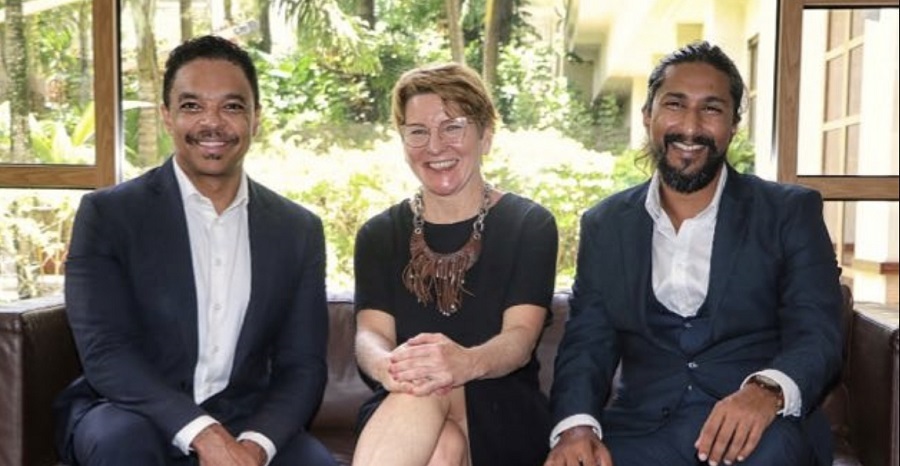Indigenous VCs, the Unsung Heroes: Spotlighting Launch Africa Ventures' Activities in the African Tech Ecosystem

Africa has become one of the leading startup hubs in the last decade, with its young and tech-savvy population driving innovation and entrepreneurship across the continent. The continent has seen an increase in the number of VCs investing in these startups in recent years (nearly 1,500 investors have been involved in at least one deal in Africa in the last couple of years), with indigenous VCs accounting for only 25% of the total number of investors [PDF] active in Africa’s VC landscape in 2021. Over the years, they have remained unsung heroes. They help to shape and support the continent’s innovation ecosystem. These indigenous venture capitalists make early-stage investments in innovative startups that solve local problems while driving economic growth.
These indigenous VCs are said to be unsung heroes because, among all VCs’ endeavors, early-stage investment is one of the most audacious because it involves writing checks to startups whose chances of survival are slimmer than their chances of failure, considering that 90 percent of startups globally fail yearly, according to a report, thus this article will explore Lunch Africa Ventures activities and impact on the African tech ecosystem in the last couple of years.
Meet Africa’s Most Active Investor, one of the Indigenous VCs
Launch Africa Ventures
Founded in 2020, Launch Africa Ventures is a venture capital firm based in Ebene, Mauritius. The firm invests in seed-stage, early-stage, and later-stage companies operating in B2B, B2C, and technology sectors based in Africa. While Launch Africa is sector agnostic, the Fund has a preference for B2B or B2B2C tech enabled businesses with a minimum traction of $20k Monthly Recurring Revenue (MRR) and which are within 6 to 18 months of their next priced round (likely Series A). With a decade-long track record of venture building alongside some of the smartest founding teams in Africa, the VC firm back startups across multiple sectors, regions, and products that tackle the most meaningful challenges on the continent.
Over the past two years, the firm which has 238 limited partners (LPs) has invested in 22 countries across Africa and in 124 deals with 45 lead investments. Their most recent investment was on February, 21, 2023, when Workpay raised $2.7 million. Launch Africa has equally made 5 diversity investments. Their most recent diversity investment was on Sep 9, 2022, when Bitmama raised $1.7 million. They’ve also been the most active investor on the African continent for two years in a row. They have been signing more than a deal a week on average, have the widest geographical spread, and got involved in 12% of all equity deals between $100k and $10m that happened on the continent in the past couple of years according to The Big Deal Africa’s report.
Launch Africa Ventures invests up to $300k in early-stage B2B and B2B2C startups in Africa. In June 2022, it announced the close of its $36.3 million fund. It has invested in startups such as Bitmama, BFree, Chekkit, djamo, Gozem, Julaya, and Kuda.
How Launch Africa Ventures is Different from Other VCs

Commenting on the uniqueness of the VC firm, Zachariah George, managing partner at Launch Africa Ventures, said “… We generally look at companies that have gone through world-class accelerator or incubator programmes and have therefore had their business models, legal structures, and technologies vetted. These companies should also be able to utilise technology to address real-world issues and exhibit the potential to expand beyond their home market within the next 12 to 18 months. Again, we expect the companies that we back to be ready for a Series A round within 12 to 18 months of our investment.
We have made a concerted effort to change the narrative [of venture capital in Africa] with the speed, efficiency, and the type of funding we give.
We aim to take not more than eight weeks to make a decision on investing in an early stage company. Several other funds may take much longer – sometimes up to nine months – to make a decision, which certainly isn’t founder-friendly.
We only invest via founder-friendly instruments. As much as possible, we try to avoid “priced rounds” (a type of financing round in which the company issues new equity at a predetermined price per share) and instead use “SAFE notes” (simple agreement for future equity) or convertible notes for most of our investments. These instruments are straightforward and inexpensive from a legal standpoint. We are also different in that we have a shorter fund-life – seven years versus the typical 10-15 year life cycle in traditional VC – and we keep liquidity (exits) as a clear focus for our investors,” he concluded.
How the Indigenous VCs are contributing to the African tech Ecosystem
One of the significant contributions of indigenous venture capital firms to the African startup ecosystem is providing access to funding. African startups have struggled with securing funding, especially in their early phases due to a lack of investment infrastructure and a risk-averse culture in the traditional banking system. However, indigenous venture capital firms are filling this gap by providing early-stage funding to startups. These firms understand the African market and the challenges faced by African startups, which makes them better equipped to evaluate investment opportunities.
Another significant contribution of indigenous venture capital firms to the African startup ecosystem is mentorship and advisory services. Startups in Africa often lack the business acumen and experience required to navigate the complex business landscape. Indigenous venture capital firms understand these challenges and offer support and guidance to startups to help them scale their businesses. These firms leverage their networks and expertise to provide startups with access to markets, talent, and resources that they would not have been able to access on their own.
Indigenous venture capital firms also contribute to the African startup ecosystem by promoting diversity and inclusivity. African startups are often founded by underrepresented groups such as women and minorities, who face significant challenges in accessing funding and support. Indigenous venture capital firms recognize the importance of diversity and inclusivity and actively seek out startups founded by underrepresented groups. By doing so, they provide these startups with the support they need to succeed while promoting diversity and inclusivity in the African startup ecosystem.
Indigenous VCs Crucial in Building Africa’s Tech Ecosystem
In addition to providing funding, mentorship, and promoting diversity, indigenous venture capital firms also play a crucial role in building the African startup ecosystem. These firms are often led by experienced entrepreneurs who have a deep understanding of the African market and the challenges faced by African startups. As a result, they are better equipped to identify gaps in the market and create solutions that address the needs of African startups. By doing so, they are driving innovation and contributing to the growth of the African startup ecosystem.
Furthermore, indigenous venture capital firms are creating a sustainable model for investing in African startups. Unlike foreign venture capital firms that often have a short-term investment horizon, indigenous venture capital firms are committed to building long-term partnerships with startups. These firms understand the challenges of doing business in Africa and are patient investors who provide startups with the support they need to succeed. By building sustainable partnerships with startups, indigenous venture capital firms are creating a stable investment environment that will attract more investors to the African startup ecosystem.
In conclusion, indigenous venture capital firms are playing a critical role in contributing to the African startup ecosystem. They are providing access to funding, mentorship, promoting diversity, and building the ecosystem. These firms are also creating a sustainable investment model that will attract more investors to the African startup ecosystem. As the African startup ecosystem continues to grow, indigenous venture capital firms will remain essential players in driving innovation and entrepreneurship across the continent.
